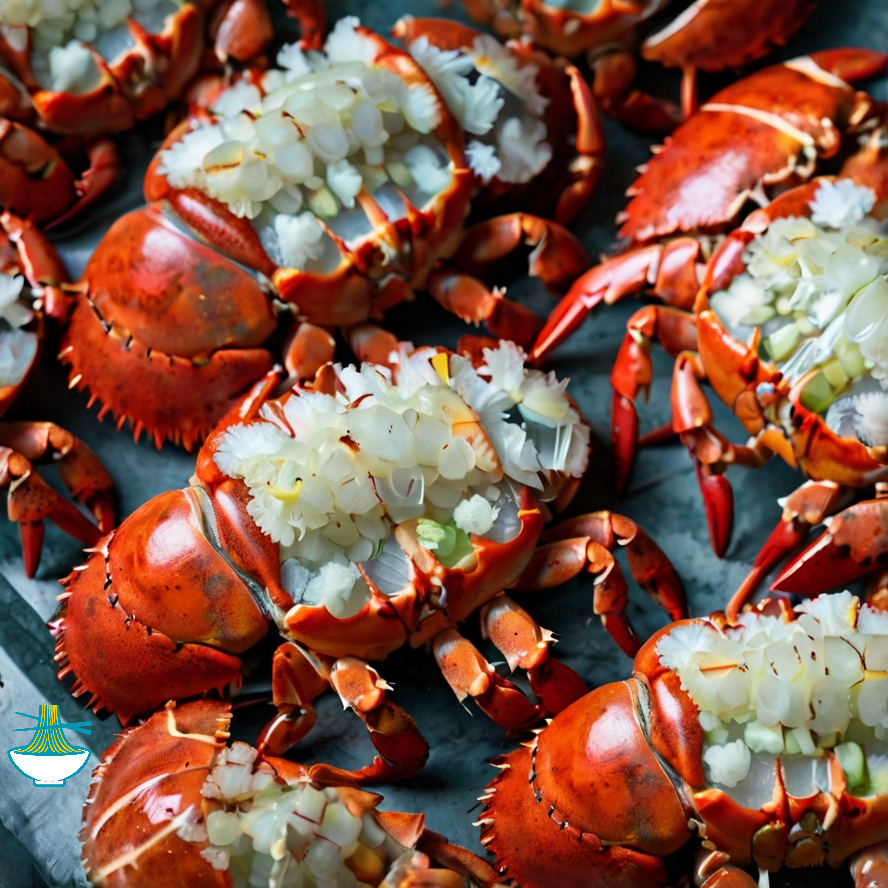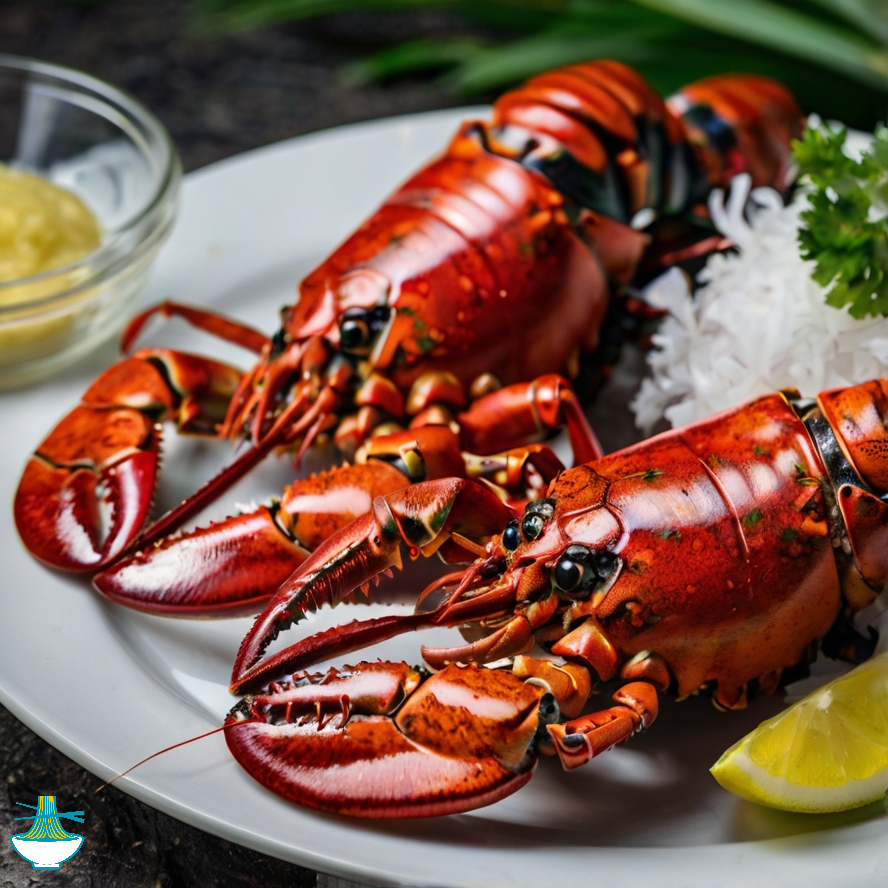Tuvalu's lobster delicacy is prepared by grilling, steaming, or cooking in coconut milk . This dish showcases the island's culinary tradition and rich seafood .
The tradition of preparing lobster in Tuvalu dates back generations, with locals mastering various cooking methods to enhance its flavor. Lobster has long been a prized ingredient in Tuvaluan cuisine, reflecting the island nation's reliance on the sea for sustenance and cultural significance.
Ingredients:
- Fresh lobster
- Coconut milk
- Salt
Method of Preparation:
1. Clean and prepare the fresh lobster by removing the shell and intestines.
2. Cut the lobster into desired pieces.
3. In a pot, pour coconut milk and bring it to a gentle simmer.
4. Add salt to taste.
5. Place the lobster pieces into the simmering coconut milk.
6. Cook until the lobster is tender and cooked through, about 8-10 minutes.
7. Serve hot with rice or your preferred side dish. Enjoy your Tuvaluan lobster delicacy!
Nutrition Value:
1. Fresh Lobster:
- Calories: Approximately 89 calories per 100 grams
- Carbohydrates: Negligible (less than 1 gram per 100 grams)
- Protein: High in protein, providing around 18 grams per 100 grams
- Fat: Low in fat, with about 1.1 grams per 100 grams
- Sodium: Varies depending on preparation, typically low
- Cholesterol: Low in cholesterol, with approximately 72 milligrams per 100 grams
- Vitamins: Rich in vitamins B12 and B6, as well as vitamin E
- Minerals: Good source of minerals such as selenium, zinc, and phosphorus
- Nutritional Benefits: Lobster is a lean source of protein, with high levels of essential vitamins and minerals. It's particularly beneficial for supporting muscle growth and repair, as well as boosting immune function due to its vitamin content.
2. Coconut Milk:
- Calories: Around 230 calories per 100 grams
- Carbohydrates: Approximately 6 grams per 100 grams
- Protein: Low in protein, providing about 2.3 grams per 100 grams
- Fat: High in healthy fats, with around 23 grams per 100 grams
- Sodium: Varies depending on added salt, typically low
- Cholesterol: Zero cholesterol
- Vitamins: Contains vitamins C, E, B1, B3, B5, and B6
- Minerals: Rich in minerals such as iron, selenium, calcium, magnesium, and phosphorus
- Nutritional Benefits: Coconut milk is a good source of healthy fats, which can promote heart health and provide a source of sustained energy. It also contains essential vitamins and minerals that support overall well-being, including immune function and bone health.
3. Salt:
- Calories: No significant caloric content
- Carbohydrates: No carbohydrates
- Protein: No protein
- Fat: No fat
- Sodium: High sodium content, with approximately 2300 milligrams per teaspoon (6 grams)
- Cholesterol: No cholesterol
- Vitamins: No significant vitamin content
- Minerals: Primarily composed of sodium and chloride
- Nutritional Benefits: While salt is essential for flavor enhancement and electrolyte balance in the body, excessive consumption can contribute to high blood pressure and other health issues. Moderation is key when using salt in cooking.


Comments